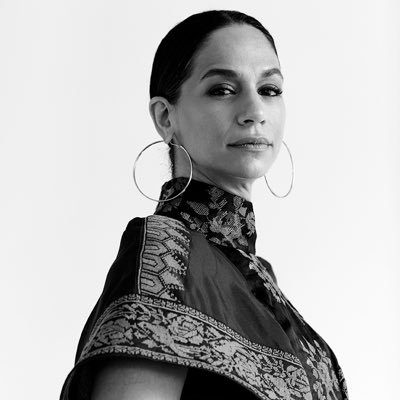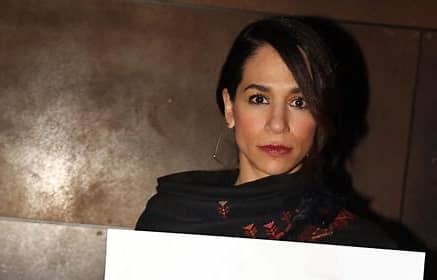Pathbreakers of Arab America—Noura Erakat

By John Mason / Arab America Contributing Writer
This is the thirty-eighth of Arab America’s series on American pathbreakers of Arab descent. The series includes personalities from entertainment, business, sports, science, academia, journalism, and politics, among other areas. Our thirty-eight pathbreaker, Noura Erakat, is a noted Palestinian American activist, university professor, legal scholar, and human rights attorney. Noura’s research interests focus on human rights law, humanitarian law, national security law, refugee law, social justice, and critical race theory, emphasizing the Israel-Palestine conflict. Erakat has been especially vocal on the latest go-around of the Israel-Palestine conflict, namely the Gaza war.
Distinguished legal expert, Noura Erakat makes great legal strides in human rights, national security, refugee law, and social justice
Noura Saleh Erakat, born in Alameda County, California, on January 16, 1980, is a Palestinian American activist, university professor, legal scholar, and human rights attorney. According to Wikipedia, Erakat is currently an associate professor in the Department of Africana Studies and the Program in Criminal Justice at Rutgers University, New Brunswick, New Jersey. Her primary focus is the Israel-Palestine conflict. There is only limited information available on Noura’s personal and family life, except that she has a brother, Youssef (better known by his YouTube name, Fousey), a cousin, Ahmad, and an uncle, Saeb. An unconfirmed source reports that she is married to Bassam Haddad, a professor at George Mason University in Virginia.
Noura’s academic achievements by any standard are stellar. She graduated Phi Beta Kappa from the University of California, Berkeley, and was named a UC-Berkeley Human Rights Center Summer Fellow in 2003. She was awarded the Francine Diaz Memorial Scholarship Award upon receiving her Juris Doctor from the UC Berkeley School of Law. In 2010, Erekat, with the Arab Studies Institute, founded ‘Jadaliyya (“dialectic”), an independent magazine to cover the Arab World and the broader Middle East. Subsequently, in 2012, Erekat completed her L.L.M. at Georgetown University Law Center.
Beyond her academic role, Erakat has consulted the federal government, serving as legal counsel to the House of Representatives Oversight Committee, from 2012 to 2014. Noura currently serves on the board of the Institute for Policy Studies and as a member of the Board of Directors for the Trans-Arab Research Institute and is a policy advisor with Al-Shabaka: The Palestinian Policy Network.
An important result of Erakat’s work, along with co-editor Mouin Rabbani, is the seminal book, “Aborted State? The UN Initiative and New Palestinian Junctures.” The book, reviewed by Tadween editors, “examines the Palestinian UN initiative from the key perspectives of strategy and leadership.” Reviewers praised the book in the context of the Palestinian statehood bid at the UN in 2011, the Oslo Accords, in the Palestinian struggle for self-determination.
As Erakat and Rabanni report on the Oslo Accord and its aftermath, “The entire edifice came crashing down in 2000. The failed Camp David summit demonstrated that the maximum Israel was prepared to countenance on each and every issue of substance fell far short of the minimum any Palestinian leader—no matter how accommodationist—was prepared to accept.
As the ensuing 2000-2005 uprising petered to an end and Mahmoud Abbas replaced Yasir Arafat, renewed Israeli-Palestinian diplomacy, under the exclusive sponsorship of first the Bush and then Obama administrations, confirmed the view that negotiation had become an end in itself. Its strategic objective is to renew the process. Rather than transform the status quo, it confirmed it.”
Erakat doubles down on Israel’s looming invasion of Rafah—a worst-case scenario for the Gaza war

In a recent interview with Democracy Now Amy Goodman, Erakat spoke bluntly about the Israel-Hamas war and the U.S. role as a broker. Here, we review the highlights of that interview. In Goodman’s introduction alone, Noura did not hold back: “This is disproportionate, excessive force that is meant to terrorize a population,” says Erakat. “Israel must stop its genocidal campaign now.”
On the question of the Netherlands’s International Court of Justice ruling under the Genocide Convention not to perpetuate Israel’s genocidal campaign, Erakat was clear: “… this is a warning to the world. This is a warning to the world that we are watching, that this is very blatant and being exposed.” Furthermore, Erakat claimed, “Israel must stop its genocidal campaign now. If it wants to offer refuge to Palestinians, it must offer refuge to Palestinians within its — within what is historic Palestine, Palestine 1948, where they can actually be housed safely and where we know Israel does not want them and will return them to Gaza.”
Erakat depicted a dismal picture regarding the remaining hostages, saying, “Amy, Israel is not concerned — the Israeli government is not concerned with its hostages. If they were, they would have engaged in good-faith negotiations. The diplomatic negotiations led to the release of 136 hostages. That wasn’t any military operation. After five months, they’ve only extracted two hostages. We know that the families want a truce. We know that the government is opposing a truce. We know that the concern is not the hostages. Israel shot to kill two of them, two of their own, who were raising white flags and speaking in Hebrew — giving us an idea that this is not a legitimate war. This is a genocidal campaign of extermination.”
Using her best legal expertise, Erakat clarified Israel’s illegal acts in the war, noting, “Last word on this. There is a concept in international law known as state responsibility, where a state can — must deal with the consequences of its actions. It cannot — Israel cannot say — cannot say — that it is now fighting a war of self-defense, which it doesn’t have a right to under international law, against territory that it occupies. But if those actions are illegal, it must bear the consequences for them.”
Furthermore, Erakat averred, “Israel has imposed a siege against international law for 17 years, imposed a military — a prolonged military operation for 56 years, imposed an apartheid regime, which is a crime against humanity, that the international community has said is an apartheid regime, and still asking the world for an exception and blaming the Palestinians as the assailants as it is committing a genocide, and now asking the world to let it commit genocide as a form of exception, that somehow it is like any other situation.”
And, finally, Erakat claimed, “And rather than meet that with the full force of diplomatic and international will to rebuff it, instead, we’re allowing Israel to create that exception, which will make none of the world safe, when other powerful countries and nuclear powers decide that they want to decimate an inconvenient population, a native population, as in this case, to fulfill its national interests. It defies all of the logic of international legal institutions and international law, which are set up to regulate things like this in this very moment.”
As the Israel-Hamas war rages on, Erakat’s words echo loudly and clearly. She is a beacon of clarity and wisdom. Her legal and humanitarian judgments about that ugly war linger on, her support for the war-torn Palestinians remains strong, and her generosity in helping her war-torn people is ever-present.
Sources:
–“Noura Erakat,” Wikipedia Biographies of Arab Americans, 2024 “Noura Erakat,” Rutgers University, Program in Criminal Justice, 2023-24
–“Aborted State? The UN Initiative and New Palestinian Junctures,” Edited by Noura Erakat and Mouin Rabbani, Book Review in Tadween Editors, 10/08/2013
–“Justice for Some: Law and the Question of Palestine, Noura Erekat, Stanford University, 2019
–“‘Worst-Case Scenario’: Noura Erakat on Israel’s Looming Invasion of Rafah,” Democracy Now, 2/12/2024
John Mason, Ph.D., focuses on Arab culture, society, and history and is the author of LEFT-HANDED IN AN ISLAMIC WORLD: An Anthropologist’s Journey into the Middle East, New Academia Publishing, 2017. He has taught at the University of Libya, Benghazi, Rennselaer Polytechnic Institute in New York, and the American University in Cairo; John served with the United Nations in Tripoli, Libya, and consulted extensively on socioeconomic and political development for USAID and the World Bank in 65 countries.
The views and opinions expressed in this article are those of the author and do not necessarily reflect the position of Arab America. The reproduction of this article is permissible with proper credit to Arab America and the author.
Check out our Blog here!








